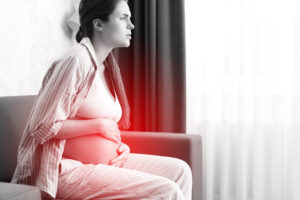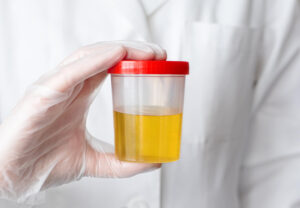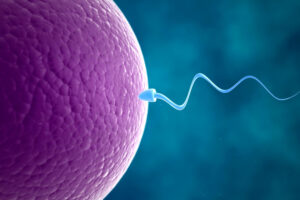Experiencing pain after sex is something many women hesitate to talk about — but it’s more common than most realize. While occasional discomfort may not be alarming, consistent or sharp pain after intercourse can be a sign that something deeper is going on. One of the most frequent — yet often overlooked — causes is endometriosis.
If you’ve been silently struggling with pain during or after sex, you’re not alone. Studies suggest that over 50% of women with endometriosis experience pain during intimacy, a condition known as dyspareunia. This pain can be physically distressing and emotionally draining, affecting both your sexual and overall quality of life.
In this article, we’ll explore what causes endometriosis-related pain after intercourse, how to identify the symptoms, and what treatment options can bring lasting relief.
Understanding Endometriosis
Endometriosis is a chronic medical condition in which tissue similar to the uterine lining (endometrium) grows outside the uterus. These tissue growths — called implants or lesions — can appear on the:
- Ovaries and fallopian tubes
- Outer walls of the uterus
- Bladder and intestines
- Pelvic walls or rectovaginal area
Even though these tissues are outside the uterus, they respond to hormonal changes during the menstrual cycle, thickening, breaking down, and bleeding — just like the uterine lining. The problem is, there’s nowhere for this blood and tissue to go, leading to inflammation, scarring, and the formation of adhesions (bands of fibrous tissue that bind organs together).
These internal changes are what cause the hallmark symptoms of endometriosis — pelvic pain, painful periods, fertility problems, and pain during or after sex.
Why Endometriosis Causes Pain After Intercourse
Pain during or after sexual intercourse (dyspareunia) is one of the most common and distressing symptoms of endometriosis. The pain can occur immediately during sex or hours afterwards, and it may vary from a dull ache to sharp, stabbing pain. Here’s why:
1. Inflammation and Irritation of Pelvic Tissues
When endometrial-like tissue attaches to pelvic organs, it becomes inflamed and susceptible. Deep penetration during sex can press against these inflamed areas, causing intense pain that lingers after intercourse.
2. Adhesions and Scar Tissue
Over time, endometriosis can create scar tissue and adhesions that cause pelvic organs to stick together. This reduces flexibility and movement, so when these tissues are stretched during intercourse, it can cause deep, throbbing pain.
3. Involvement of Specific Organs
If the endometrial tissue grows near the vaginal wall, rectum, or uterosacral ligaments, it can directly affect the structures involved in sexual activity. Deep penetration may aggravate these areas, causing sharp or burning sensations.
4. Pelvic Muscle Tension
Chronic pelvic pain often leads to muscle tightening or spasms in the pelvic floor. These involuntary contractions can make sex — and even the thought of it — uncomfortable.
5. Hormonal Fluctuations
Endometriosis pain often fluctuates with your menstrual cycle. Around ovulation or menstruation, hormonal surges increase inflammation, making pain after intercourse worse during those times.
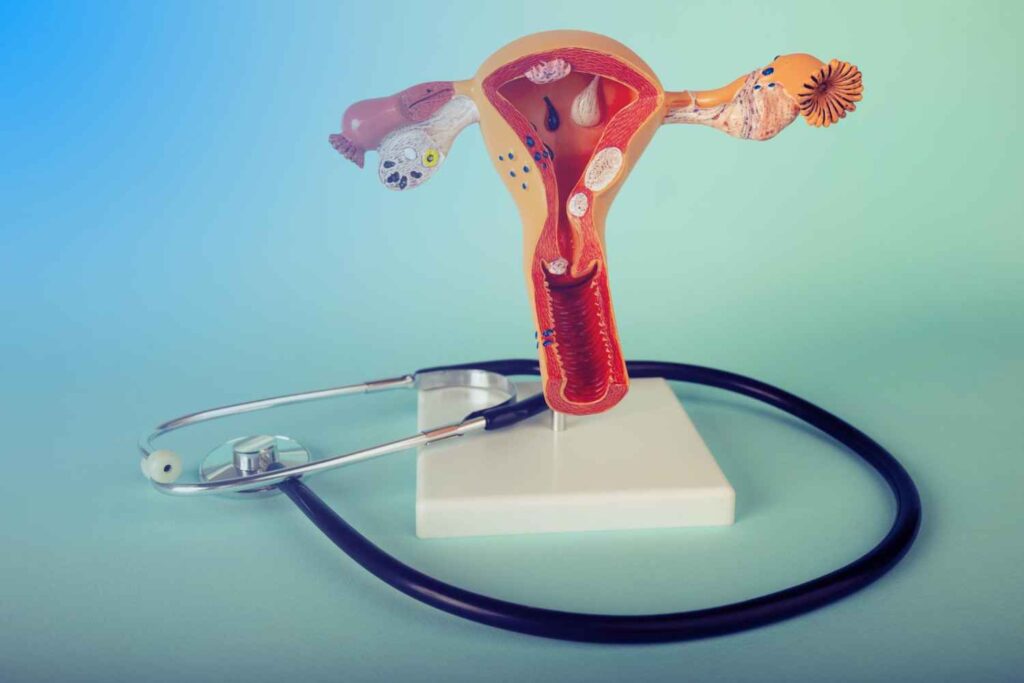
What Pain After Sex Feels Like in Endometriosis
Endometriosis pain after intercourse varies from person to person, depending on the severity and location of lesions. You might experience:
- Deep, stabbing pain during penetration
- Cramping or aching sensations that continue for hours or days afterwards
- Pain radiating to the lower back or thighs
- Sharp pelvic pain when changing positions during sex
- Painful bowel movements or urination after sex
This pain may occur every time you have intercourse or only at specific times in your cycle. If it’s consistent or worsening, it’s important not to dismiss it as “normal.”
The Emotional Impact of Painful Intercourse
Pain after sex doesn’t just affect your body — it impacts your emotions, confidence, and relationships. Many women with endometriosis describe feelings of guilt, frustration, or anxiety before intimacy. Some even avoid sex altogether out of fear of pain.
This cycle of pain and avoidance can strain even the strongest relationships. It’s crucial to remember that painful sex is not your fault, and it’s not something you have to live with. Speaking openly with your partner and consulting a medical expert can help break the cycle and restore your sense of comfort and connection.
Other Symptoms That May Point to Endometriosis
If pain after intercourse is caused by endometriosis, you might also experience:
- Painful or heavy menstrual periods
- Pelvic pain before or after your period
- Pain during bowel movements or urination
- Chronic lower back pain
- Bloating or digestive issues
- Difficulty conceiving
These symptoms can range from mild to severe and often worsen over time if left untreated.
When to See a Doctor
You should consult a gynaecologist or fertility specialist if:
- Pain during or after sex is persistent
- You experience severe menstrual cramps that interfere with daily life
- You’ve been trying to conceive without success
- Pain is accompanied by digestive or urinary discomfort
Getting an early diagnosis can help prevent complications and improve your long-term reproductive health.
How Endometriosis Is Diagnosed
Diagnosing endometriosis can be tricky since symptoms overlap with other conditions like pelvic inflammatory disease (PID) or irritable bowel syndrome (IBS). Your doctor will likely use a combination of the following:
- Pelvic Examination: To identify tender spots or nodules.
- Ultrasound or MRI Scan: To detect cysts or lesions on reproductive organs.
- Laparoscopy: A minimally invasive surgical procedure that allows doctors to view and remove endometrial tissue directly. It remains the gold standard for diagnosis.
Accurate diagnosis is the first step toward relief and effective management.
Treatment Options for Endometriosis-Related Pain After Sex
Although there is currently no cure for endometriosis, a variety of treatments can help manage pain, slow progression, and improve fertility.
1. Pain Relief Medications
Over-the-counter painkillers like ibuprofen or naproxen can help manage inflammation and mild discomfort. However, these are best for temporary relief and may not address the root cause.
2. Hormonal Therapy
Hormonal treatments reduce or block estrogen production, preventing the growth of endometrial lesions. Options include:
- Birth control pills, patches, or vaginal rings
- Progestin-only treatments
- Gonadotropin-releasing hormone (GnRH) agonists
- Hormonal IUDs
These therapies can help reduce pain during and after sex by minimizing inflammation and suppressing lesion growth.
3. Laparoscopic Surgery
For moderate to severe cases, laparoscopic excision surgery is often recommended. This minimally invasive procedure removes endometrial implants and scar tissue, usually providing long-term relief from pain and improving fertility outcomes.
4. Pelvic Floor Physiotherapy
Chronic pelvic tension can worsen pain during intimacy. Pelvic physiotherapists can teach exercises and relaxation techniques to release stress and improve blood flow, helping make sex more comfortable.
5. Psychological Support
Because endometriosis pain can affect emotional well-being, counseling or sex therapy can help address anxiety, fear, and communication challenges between partners.
6. Lifestyle and Home Remedies
In addition to medical treatments, simple changes can help ease pain and support healing:
- Apply heating pads to the abdomen for relief.
- Follow an anti-inflammatory diet rich in vegetables, fruits, and omega-3s.
- Practice gentle yoga or meditation to reduce stress.
- Avoid processed foods, caffeine, and alcohol that may worsen inflammation.
- Get enough sleep and regular exercise.
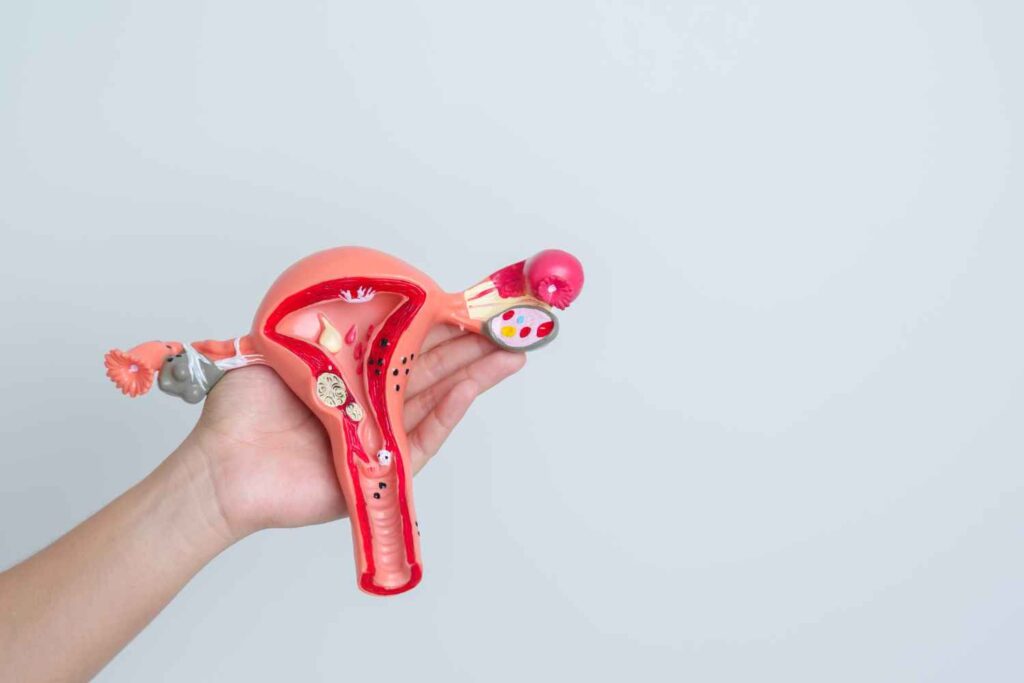
These small but consistent steps can improve your overall well-being and make pain episodes less frequent.
Tips to Make Intimacy More Comfortable
You don’t have to give up on intimacy because of pain. With a few adjustments, you can make your experiences more enjoyable and less stressful:
- Communicate openly with your partner about what feels good and what doesn’t.
- Try positions that allow you to control the depth and angle of penetration.
- Use lubricants to reduce friction and dryness.
- Avoid sexual activity during flare-ups or your most painful days.
- Discuss with your doctor the use of pain relief beforehand.
Remember, a healthy sexual relationship is based on communication, consent, and comfort — not pressure or pain.
Can Endometriosis Affect Fertility?
Unfortunately, yes. Endometriosis can affect fertility by blocking fallopian tubes, distorting pelvic anatomy, and causing inflammation that interferes with egg quality and implantation. However, many women with endometriosis still conceive successfully with timely treatment and assisted reproductive techniques like IVF (In Vitro Fertilisation).
If you’re facing infertility concerns along with pain after intercourse, consulting a fertility specialist early can help plan a tailored approach for conception.
Living with Endometriosis: Finding Hope and Healing
Living with endometriosis can be exhausting, both physically and emotionally. But with early diagnosis, proper treatment, and lifestyle support, it is absolutely possible to manage pain, improve sexual comfort, and lead a fulfilling life.
You are not alone — millions of women experience the same struggles, and many have found relief through medical care and open communication with partners and specialists.
If you’re in Hyderabad and suspect endometriosis may be behind your pain after sex or pelvic discomfort, consult an experienced gynaecologist or fertility expert at your nearest specialized clinic. Early intervention can make a world of difference.
Key Takeaway
Pain after intercourse is not something to ignore or accept as usual.
In many cases, endometriosis is the hidden cause — and it’s treatable. With accurate diagnosis, personalized care, and lifestyle adjustments, you can find real relief and enjoy intimacy without pain.
